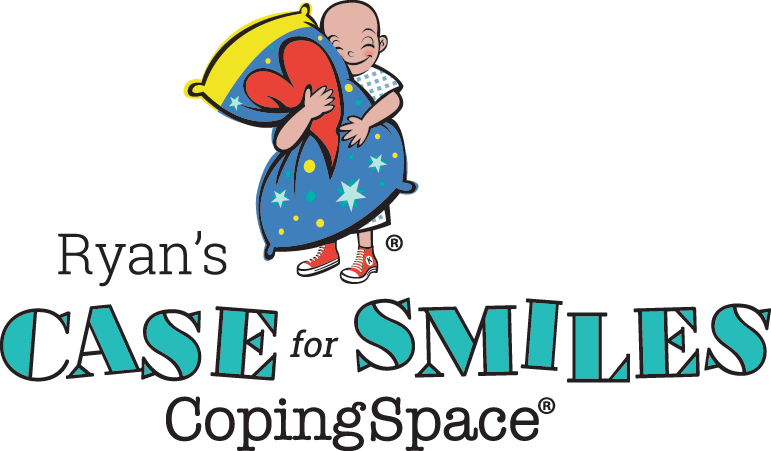BLOG
How to Help Siblings of Children with Cancer and Other Serious Illnesses
 When your brother or sister is diagnosed with cancer or another serious illness, your whole life changes. Routines, family dynamics and priorities are all flipped on their head, and you must quickly adjust to the “new normal”. Plus, there are all the conflicting emotions that siblings feel – anger, jealousy, fear, and guilt are just a few.
When your brother or sister is diagnosed with cancer or another serious illness, your whole life changes. Routines, family dynamics and priorities are all flipped on their head, and you must quickly adjust to the “new normal”. Plus, there are all the conflicting emotions that siblings feel – anger, jealousy, fear, and guilt are just a few.
Social and community support is so important for these children. Yet while many may step forward to assist the family, siblings are often overlooked. Those who do remember may not know how to help.
Is it any surprise that 75% of siblings report posttraumatic stress symptoms interfere with daily functioning and 25% develop PTSD?1
With over 27 million children in the US suffering from one or more current or lifelong health conditions2, and 80% of children growing up with a sibling3, odds are high you know a child whose brother/sister has cancer or another illness and could use some help. That’s why we’ve gathered advice from experienced siblings for you here. Plus, even more tips on how to support children whose sister/brother has a serious medical condition below.
Advice from Siblings of Children with Cancer or Chronic Illnesses
It’s great to think of ways to support siblings of children with cancer and other illnesses. It’s even better to get tips from the siblings themselves! After all, who knows better than someone who’s been there?
Of course, all siblings are unique individuals with their own circumstances and experiences. Things like personality, family dynamics, environment and brother/sister’s diagnosis all play a role. However, there are some common themes, and hopefully this expert advice is helpful to you.
“The sibling situation has much more complexity than you’d initially think. Because of this, I think I’ll categorize my advice into two different age groups. These points apply for all siblings, at any age, but this is where I would focus based on my personal experience.
For children ages 10-11 years and younger, supporting their individuality is so important. Help them find their identity outside of their siblings’ illness. Keep them
on that sports team. Keep bringing them to their instrument lessons. Set up those play dates for them to see their new friends. Engage with them when they find a new hobby or interest.
I can’t tell you how many times I was introduced or referred to as “Kyle’s brother” and not “Eric”. Growing up, the first comment from anyone who hadn’t seen me in a while would always be, “How is your brother?”, not, “How are you?”. These illnesses are so consuming on your lifestyle that it can be really hard to define yourself outside of them, especially when you’re that young and have no idea how to advocate for yourself yet.
Now for ages 12+, I would recommend looking at the child’s bigger picture. There is a lot more going on than just the situation of their sibling’s health. Siblings experience all the troubles and confusion of middle school and high school, just like everyone else. If you’re supporting one of these children and they’re struggling, it could be about any number of things. Yes, their sibling is sick, but they also may have just failed an important test. Maybe they’re having trouble making friends. A different family member or close friend may have recently passed away. Siblings are often labeled children dealing with this one, obvious hardship, but that doesn’t mean other difficult things aren’t happening as well. Allow them the space to talk and learn about all areas of their life, not just in relation to their sibling.”
– Eric, who’s younger brother, Kyle, was diagnosed with Cowden Syndrome shortly after birth. Kyle also has Autism Spectrum Disorder, along with learning, processing and speech delays.
“Friends were so important in helping me get through my brother’s cancer, so my advice is mostly directed towards them.
Familiarize yourself with, or ask questions about, medical terms or updates so you understand what part of their journey your affected friend may be in.
- Ask first if it’s a good time to talk or ask about your friend’s sibling’s illness/injury or diagnosis.
- Treat your impacted friends normally. Go out to eat or do an activity that’s not related to cancer/hospitals – something you’d do with them before their sibling was sick too!
- Recognize that every day your friend may be feeling different emotions. It may be frustrating, but it is for them too.
- If you want to help your friend by doing something, just do it! They will likely not ask you to make them dinner or start a GoFundMe campaign. If you feel compelled to do something, don’t wait for them to ask, just do it and it’ll be appreciated.”
– Sam, who’s younger brother, Zach, is a two-time leukemia survivor. Zach’s first battle came in 2008 and relapsed in 2019. He will be two years cancer free this August.
More Tips to Help Children Whose Brother/Sister Have an Illness or Injury
- Try as much as possible to maintain a sense of normalcy in everyday life. If you are a caretaker, seek to keep many of the same routines. Community members, in turn, can step in to ensure siblings can still participate in their normal activities. Rides to/from sports practices, playdates, and even trips to the store may be greatly appreciated.
Encourage the sibling’s friends to do the same. Friends play a very big role in helping siblings cope. And nothing is worse than feeling like the odd kid out, or abandoned by those for whom you care.
 Share information about their brother/sister’s health and treatment, and answer questions honestly, in simple terms. Children hear more than you realize and will make assumptions otherwise. It helps to ask questions to try to understand what the sibling knows first. Then you can provide information about their brother or sister’s diagnosis and treatment with age-appropriate terms.
Share information about their brother/sister’s health and treatment, and answer questions honestly, in simple terms. Children hear more than you realize and will make assumptions otherwise. It helps to ask questions to try to understand what the sibling knows first. Then you can provide information about their brother or sister’s diagnosis and treatment with age-appropriate terms.
This should not be a one-time conversation. It’s equally important to keep children updated on changes, and to remain open when inevitable new questions come up.
- Treat siblings as whole people, separate from their brother/sister. While their family’s health journey is an important part of their life, it’s not the only one. They have other things going on, interests, and even problems. Many days their siblings’ illness/injury may not be top of mind.
- However, do remember siblings are impacted just as much as anyone else in the family. They too have had their lives disrupted. They too are feeling all the feelings. And they too are helping to care for their sibling – and perhaps the rest of the family as well.
You can expect that some things may remain the same, such their core personality, interests, or hobbies. But others will change. Their priorities, desires and concerns may shift. Even the way they see the world. Don’t take it personally and seek to be supportive – however they show up that day. And of course, try to treat them as equally important as any other member of the family, especially when bringing gifts or arranging special activities.
- Don’t assume siblings will react the same way as any other member of the family or other people you may know. Everyone responds differently to a child’s, even siblings within the same family. A lot depends on their personality, age, and the amount of change in their daily life.
One child may become an advocate and deeply identify as being the sibling of a child with special needs. The other well brother may pretend nothing has happened at all. Both are normal and valid reactions, to be respected.
- Follow children’s lead when it comes to talking about their sibling’s illness/injury. While it’s important to encourage them to share their feelings, it’s best first to ask if they want to talk. Their answer will likely change day to day. One day they may really need to get their thoughts and feelings out. The next, they may want to speak about anything else.
For more tips on how to support siblings of children with cancer and other chronic health problems, visit the Coping Tips for Siblings page.
References
- Kaplan, L. M., Kaal, K. J., Bradley, L., & Alderfer, M. A. (2013). Cancer-related traumatic stress reactions in siblings of children with cancer. Families, Systems, & Health, 31(2), 205–217. https://doi.org/10.1037/a0032550
- Child and Adolescent Health Measurement Initiative. 2017-2018 National Survey of Children’s Health (NSCH) data query. Data Resource Center for Child and Adolescent Health supported by the U.S. Department of Health and Human Services, Health Resources and Services Administration (HRSA), Maternal and Child Health Bureau (MCHB).Retrieved [02/21/22] from [www.childhealthdata.org].
- McHale SM, Updegraff KA, Whiteman SD. Sibling Relationships and Influences in Childhood and Adolescence. J Marriage Fam. 2012 Oct 1;74(5):913-930. doi: 10.1111/j.1741-3737.2012.01011.x. PMID: 24653527; PMCID: PMC3956653.
